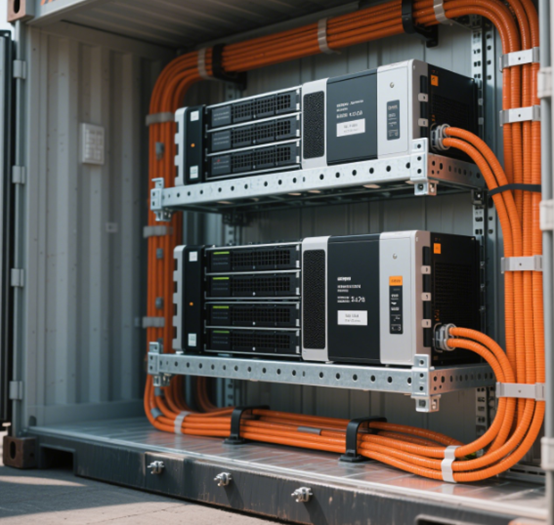What industries are bare metal servers suitable for
Bare metal servers, also known as physical servers, refer to servers that directly use physical hardware resources. Compared with virtual servers, bare metal servers are not affected by the performance of the virtualization layer and provide higher performance and control. Due to their high performance, high reliability and flexibility, bare metal servers have been widely used in multiple industries. The following are some of the main industries where bare metal servers are applicable and their specific advantages.
Bare metal servers
1. Financial services industry
The financial services industry has extremely high requirements for the speed and security of data processing. Bare metal servers can meet these requirements:
High performance computing: Tasks such as financial transactions, risk analysis and market simulation require high performance computing capabilities. Bare metal servers can provide low latency and high throughput to ensure transaction speed and data processing efficiency.
Data security: Data in the financial industry is highly sensitive. Bare metal servers provide higher data security through exclusive hardware resources and strict access control measures.
Compliance: Bare metal servers can more easily meet the compliance requirements of the financial industry, such as PCI-DSS, to ensure that data storage and processing meet industry standards.

2. Gaming industry
The gaming industry requires powerful computing power and low-latency networks to provide a smooth user experience. Bare metal servers excel in this area:
High performance: Bare metal servers provide high computing power, support complex game graphics rendering and physics engine calculations, and improve game performance.
Low latency: Gamers are very sensitive to latency, and the direct hardware access and dedicated network connection of bare metal servers can significantly reduce latency and improve the player experience.
Scalability: The number of users in the gaming industry fluctuates greatly, and the flexible configuration and expansion capabilities of bare metal servers can meet the needs of different periods.
III. Media and entertainment industry
The workloads in the media and entertainment industry involve a large amount of data processing and storage, such as video editing, animation production, and streaming services:
High throughput: Video editing and rendering require high-throughput storage and network performance, and bare metal servers can provide fast data transmission and storage access.
Large-scale storage: HD and 4K video files are large in size, and bare metal servers support large-capacity storage configurations to meet the storage needs of media files.
Data processing capabilities: Streaming services require real-time processing and transmission of large amounts of data, and the high-performance processing capabilities of bare metal servers can ensure the stability and smoothness of streaming services.
4. Scientific Research and High-Performance Computing
Scientific research and high-performance computing (HPC) fields usually need to handle complex computing tasks and large-scale data sets:
Computing power: Bare metal servers provide powerful computing power to support scientific computing, data analysis, simulation and other tasks.
Flexibility: The needs of scientific research projects are diverse and change frequently. The flexible configuration of bare metal servers can be adjusted according to specific project needs.
Data transmission: The amount of scientific research data is large and the transmission is frequent. Bare metal servers support high-bandwidth network connections to ensure the efficiency and reliability of data transmission.
5. E-commerce industry
E-commerce websites require high performance and high availability to handle a large number of user requests and transaction data:
High concurrent processing: E-commerce platforms need to handle a large number of concurrent requests. Bare metal servers can provide high concurrent processing capabilities to ensure the stable operation of the website.
Security: E-commerce platforms involve a large amount of user data and payment information. Bare metal servers provide higher security and data isolation to protect user privacy.
Fast deployment: E-commerce platforms need to respond quickly to market changes. The rapid deployment and flexible configuration capabilities of bare metal servers can help enterprises quickly launch new features and services.
Bare metal servers are suitable for multiple industries, including financial services, gaming, media and entertainment, scientific research and high-performance computing, and e-commerce, due to their high performance, high reliability, and flexibility. These industries have very high requirements for computing power, data security, low latency, and flexibility, and bare metal servers can meet these requirements by providing dedicated hardware resources and high-performance configurations. With the continuous advancement of technology, bare metal servers will continue to play an important role in more industries, helping enterprises achieve their business goals and improve user experience.

 DNS Intelligent Resolution
DNS Intelligent Resolution

 Custom Authoritative DNS
Custom Authoritative DNS
 Cloud Computing Services
Cloud Computing Services
 Server Rental
Server Rental
 DDoS protection
DDoS protection
 About DNS.COM
About DNS.COM
 Support
Support
 Contact Us
Contact Us
 AFF
AFF
 API Docs
API Docs

 CN
CN
 EN
EN





 Online Customer service
Online Customer service






